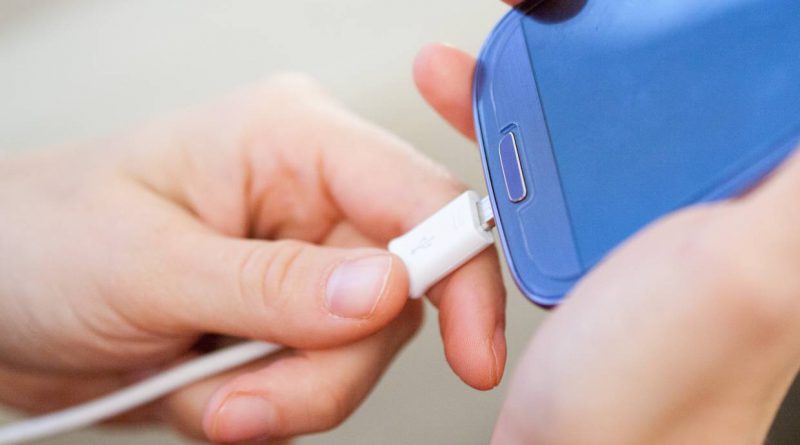Don’t go to bed with a charging cellphone
Lithium-ion batteries are being built to store more energy in a smaller space, and that combination is causing more danger of explosion, fire and injury.
Authorities recommend some simple steps can protect people and property from injury.
Lithium-ion batteries are rechargeable batteries that power cellphones, portable battery powered tools, laptop computers, toys and other electronic devices.
Hazards from faulty batteries include overheating, fire, electrical shock from battery chargers, thermal burns, exposure to alkaline battery electrolytes, and battery components being ejected at high velocities, according to the US Consumer Product Safety Commission (CPSC).
Trouble can occur while the battery is in use, in storage, or being charged, according to the CPSC.
A number of companies, such as hover board and cell phone producers, recalled products after widespread malfunctions.
“You should notify the manufacturer if you have trouble with a product,” Steve Gilliam, Zionsville Fire Department EMS division chief, said. “Do a Google search. There might be a recall on that product.”
Notifying the manufacturer helps them identify products that may need to be recalled to prevent further injury, he said.
Some manufacturers are developing less flammable solid-state batteries and other features that would improve safety, but progress is slow, and lithium-ion batteries are proliferating in the meantime.
Electronics makers continue to push for increasingly miniaturised, light-weight devices that use batteries with more energy packed into smaller spaces than in traditional rechargeable batteries.
The combination of “high-energy volatile chemistry packed into a small volume requires special safeguards to minimise potential hazards”, according to the CPSC website.
High-energy, high-density batteries need enhanced safety systems and additional care when they are in use, and they should be properly tested with the product performing its intended use and with its charger system, according to the CPSC and Underwriter’s Laboratory, Inc.
While test standards are in place for lithium-ion batteries, UL continues to revise standards and testing methods as new information about failures and their causes becomes available.
UL is especially focused on internal short circuit failures believed to occur during manufacturing. The problem is so small that workers don’t see the problem during manufacturing. Sometimes short circuit occurs later.
Short circuit failures can lead to overheating, called thermal runaway, and can cause fires and injury.
“Although lithium-ion batteries have had some bad press with large notebook computer and cell phone battery recalls in the recent past,” Laurie Florence, UL principal engineer, wrote for the Society of Fire Protection Engineers, “the actual field failure rate compared to the number manufactured is extremely small, considering that over a billion lithium-ion batteries have been sold in the past decade.”
More than four million notebook computers were recalled in 2006.
“The fact that most people who use lithium-ion battery products on a daily basis never experience these types of incidents supports this assertion,” Florence continued. “However, in the rare cases when an event leads to a thermal runaway, the results can be severe.”
UL recommends safety precautions including: reading product instructions and using lithium-ion powered products only as recommended; not overcharging batteries; and not over-discharging batteries.
“Charge correctly, don’t overcharge, and follow instructions,” Mike Baird, Lebanon Fire Department deputy chief, agreed.
“Don’t ever let kids go to bed with their phones on the chargers,” he added. Cellphones can overheat among flammable bed linens.
Beard also suggests storing hover boards or other lithium-ion powered devices in the center of a concrete garage floor, away from walls and other flammable materials.
Also, stop using the battery if it emits and odour, changes colour, is too hot, changes shape, leaks or makes odd noises, the National Fire Protection Association recommends.
Source: TheStar

